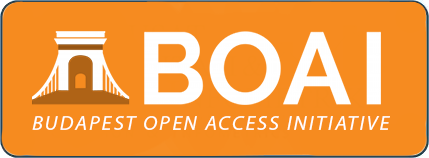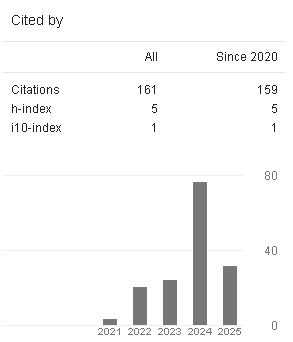The Influence of Abrahamic Faiths in the Religious Pluralism Agenda in Malaysia
Keywords:
Ideology, Religious Pluralism, Abrahamic Faiths, Hermeneutics, LiberalismAbstract
Pluralism is a school of thought that originated in the West. It evolved from the ideas of Liberalism, which advocates for unlimited freedom. Pluralism suggests that truth is relative, not absolute. It allows anyone to claim the truth, even without proof. Religious pluralism stems from this concept, asserting that every religion holds truth even if it contradicts the other. In Malaysia, debates over pluralism have led to discussions about Islam being the final revealed religion, preceding Judaism and Christianity. This claim aims to justify Judaism and Christianity as religions revealed by God by classifying all three as part of the Abrahamic Faiths. Consequently, Jews and Christians are also asserted to have a place in heaven. To address this, the study critically analyses these claims and their relationship with the concept of Pluralism. Using the descriptive content analysis method, this qualitative study examined how the doctrine of Abrahamic Faiths and hermeneutic interpretation influence the agenda of religious pluralism in Malaysia. The study's findings indicated that Religious Pluralism, especially within the framework of the Abrahamic Faiths, is part of an organised international political agenda under the global network of Liberalism. In conclusion, defending the sanctity of Islam from the influence of religious pluralism should be the primary focus of Islamic religious authorities in Malaysia.
Downloads
References
Abd Moqsith Ghazali, L. A., & Abshar-Abdalla, U. (2009). Metodologi Studi Al-Qur'an. PT Gramedia Pustaka Utama.
Abdalla, U. A. (2003). Islam liberal & fundamental: sebuah pertarungan wacana. Yogyokarta: ElsaQ Press.
Abrahamic Family House. (2023). “About Us”. https://www.abrahamicfamilyhouse.ae/about-us#architecture. Diakses pada 11 September 2024.
Al-Baghawī, H. M. (1997). Ma‘ālim al-Tanzīl fī Tafsīr al-Qurān. Ed. Muhammad Abdullah al-Namr et al. Riyadh: Dār Ṭayyibah.
Al-Baghawi., H. M. (1997). Tafsīr al-Baghawī. Ed. Muḥammad Abdullah al-Namr et al. T.tp: Dār Ṭayyibah.
Al-Qurṭubī, M. A. (1964). Al-Jāmi’ Li Aḥkām al-Qurān. Ed. Aḥmad al-Bardūnī & Ibrahim Aṭfish. Kaherah: Dār al-Kutub al-Masriyyah.
Al-Tabari., M. J. (2010). Tafsīr al-Ṭabarī Jāmi’ al-Bayān. Makkah: Dār al-Tarbiyah wa al-Turāth.
Al-Tha‘labī., A. I. (2015). Tafsīr al-Tha’labī – al-Kashf wa al-Bayān ‘An Tafsīr al-Qurān. Jeddah: Dār al-Tafsīr.
Alvarez, F. D., Johnson, T. M., & Ross, K. R. (2020). Christianity in East and Southeast Asia. Edinburgh University Press. https://doi.org/10.1515/9781474451628-005
Anwar Ibrahim. (2020, Mei 29). Kaji Dan Nilai Kisah Ashabul Kahfi [Video]. YouTube. https://www.youtube.com/watch?v=XCBZra2Z8sw. Diakses pada 18 Ogos 2024.
Arkoun, M. (1994). Rethinking Islam. Ed. Robert D. Lee. Colorado: Westview Press.
Assyaukanie, L. (2005). Merenungkan Sejarah al-Qur’an. Abd Moqsith Ghazali (peny.), Ijtihad Islam Liberal: Upaya merumuskan Keberagamaan Yang Dinamis, cet. ke-1, Jakarta: JIL.
Azmi, A. S., & Zaman, R. K. (2023). Ketegasan Rasulullah Berhubung Isu Akidah: Analisis Hadis-Hadis Berkaitan Gereja Dan Salib: The Prophet's Stringent Attitude on The Issues of Faith: An Analysis on Ahadith Related to the Church and Cross. Journal Of Hadith Studies, 191-202. https://doi.org/10.33102/johs.v8i2.272
Azrin Wahid. (2024, Januari 9). Sah! Ashabul Kahfi bukan beragama Kristian? – Datuk Dr. Zulkifli al-Bakri. Utusantv.com. Diakses pada 18 Ogos 2024. https://utusantv.com/2024/01/09/sah-ashabul-kahfi-bukan-beragama-kristian-datuk-dr-zulkifli-al-bakri/
Bader, V. (2012). Post-secularism or liberal-democratic constitutionalism. Erasmus L. Rev., 5, 5.
Baran, Z., Sener, Y., Helmstorf, T., & Tuohy, E. (2004). Understanding Sufism and its potential role in US policy. Washington: The Nixon Center.
Behnegar, N. (1998). The intellectual legacy of Leo Strauss (1899–1973). Annual Review of Political Science, 1(1), 95-116.
Binder, L. (1998). Exceptionalism and authenticity: the question of Islam and democracy. The Arab Studies Journal, 6(1), 33-59.
Blackburn, S. (2005). The Oxford dictionary of philosophy. Oxford: Oxford University Press.
Boden, Z., & Eatough, V. (2014). Understanding more fully: A multimodal hermeneutic-phenomenological approach. Qualitative Research in Psychology, 11(2), 160-177.
Byrne, P. (2011). Religious tolerance, diversity, and pluralism. Royal Institute of Philosophy Supplements, 68, 287-309.
Daulatzai, S., & Rana, J. (Eds.). (2018). With stones in our hands: Writings on Muslims, racism, and empire. U of Minnesota Press.
Dirks, J. F. (2006). Abrahamic Faiths:Titik Temu dan Titik Seteru Antara Islam, Kristen dan Yahudi. Jakarta: Serambi Ilmu Semesta.
Esack, F. (1997). Qurʾan, liberation and pluralism: an Islamic perspective of interreligious solidarity against oppression. Michigan: Oneworld Publication
E-Sumber Maklumat Fatwa (2016). Ajaran Millah Abraham @ ibrahim atau Seumpamanya. Jabatan Kemajuan Islam Malaysia. Diakses pada 20 Ogos 2024. http://e-smaf.islam.gov.my/e-smaf/index.php/main/mainv1/fatwa/pr/16323
Fawcett, E. (2015). Liberalism: The life of an idea. Princeton University Press.
Felsenthal, I., & Agbaria, A. (2023). How to Read the Quran in Religious Islamic Education: What Educators Can Learn from the Work of Mohammed Arkoun. Religions, 14(1), 129.
Gada, M. Y. (2016). On pluralism, religious ‘other’, and the Quran: a post September-11 discourse. Indonesian Journal of Islam and Muslim Societies, 6(2), 241-271.
Ghazali, A. M. (2009). Argumen pluralisme agama: membangun toleransi berbasis al-Qur'an. Depok: Kata Kita.
Haddad, Y. Y., & Esposito, J. L. (Eds.). (2000). Muslims on the Americanization path? Oxford University Press.
Hariyanto, I. (2018). Hermeneutika al-Qur’an Muhammed Arkoun. el-Umdah, 1(2), 130-144.
Hick, J., & Hebblethwaite, B. (2014). Christianity and other religions: Selected readings. Simon and Schuster.
Hobhouse, L. T. (1912). The labour movement. New York: Macmillan Publisher.
Hoffman, B. (2007). The Radicalization of Diasporas and Terrorism: A joint conference by the RAND corporation and the Center for Security Studies, ETH Zurich (Vol. 229). Rand Corporation.
Holton, W. (2021). Liberty is sweet: the hidden history of the American Revolution. Simon and Schuster.
Holy See. (2019). A Document on Human Fraternity For World Peace and Living Together in Apostolic Journey of His Holiness Pope Francis to The United Arab Emirates, 3-5 February 2019. Diakses pada 9 Julai 2024. https://www.vatican.va/content/francesco/en/travels/2019/outside/documents/papa-francesco_20190204_documento-fratellanza-umana.html
Ibn Abī Ḥatim, A. R. (1998). Tafsīr al-Qurān al-‘Aẓīm Li Ibn Abī Ḥatim. Ed. As‘ad Muḥammad Ṭayyib. Arab Saudi: Maktabah Nizar.
Ibn Kathīr, A. F. (1999). Tafsīr al-Qurān al-‘Aẓīm. Ed. Sāmī Muhammad al-Salamah. Riyadh: Dār al-Ṭayyibah.
Idris, M. (2014). Potret Pemikiran Radikal Jaringan Islam Liberal (JIL) Indonesia. Kalam, 8(2), 367-388.
Ismail, M. A. (2006). Cabaran Akidah: Pemikiran Islam liberal. Putrajaya: Pejabat Mufti Wilayah Persekutuan, Jabatan Perdana Menteri.
Johnson, P. (2013). A Philosopher and Appeasement: RG Collingwood and the Second World War (Vol. 2). Andrews UK Limited.
Johnson, R. B. (2017). Dialectical pluralism: A meta paradigm whose time has come. Journal of Mixed Methods Research, 11(2), 156-173.
Krebs, R. R. (2008). Rethinking the battle of ideas: How the United States can help Muslim moderates. Orbis, 52(2), 332-346.
Krieg, A. (2020). On the sinister objectives of Abu Dhabi's 'crusade' against political Islam. Web publication/site, Middle East Eye. https://www.middleeasteye.net/opinion/uaes-foreign-policy-far-secular Kućko, W. (2020). Fraternity in the teaching of Pope Francis. Collectanea Theologica, 90(5), 701-740.
Krieg, A. (2023). Subversion: The Strategic Weaponization of Narratives. Georgetown University Press.
Kymlicka, W. (2017). Liberal individualism and liberal neutrality. In John Rawls (pp. 235-258). Routledge.
Musa, M. F. (2022). Freedom of Religion in Malaysia: The Situation and Attitudes of" deviant" Muslim Groups (No. 16). ISEAS-Yusof Ishak Institute.
Mustaqim, A. (2016). Dinamika Sejarah Tafsir Al-Qur’an Studi Madzahibut Tafsir/Aliran-Aliran dari Periode Klasik, Pertengahan, Hingga Modern-Kontemporer. Yogyakarta: Idea Press.
Noor, U. M. M. (2016). “Bayan Linnas Siri Ke-50: Ajaran Millah Ibrahim@Abraham Fatwa”. https://www.muftiwp.gov.my/ms/artikel/bayan-linnas/1831-bayan-linnas-siri-ke-50-ajaran-millah-ibrahim-abraham. Diakses pada 11 September 2024.
Rabasa, A. (2007). Building moderate Muslim networks (Vol. 574). Santa Monica: Rand Corporation. DOI: https://doi.org/10.7249/MG574
Ramli., A. F. & Awang., J. (2018). Sejarah Dialog Antara Agama di Malaysia. Jurnal Hadhari, 10(2), 169-190.
Rifa’i, T. (2020). Fikih Pluralisme: Kajian Tentang Multikulturalisme Dalam Perspektif Al-Qur’an. Al'Adalah, 23(1), 22-34.
Rozehnal, R. (2019). Cyber Sufis: Virtual Expressions of the American Muslim Experience. Simon and Schuster.
Ryan, A. (2017). Liberalism. A companion to contemporary political philosophy, 360-382.
Said, A. A. (2020). Hermeneutika Al-Qur’an Tentang Pluralisme Agama Perspektif Farid Esack. Jurnal Ilmiah Spiritualis: Jurnal Pemikiran Islam dan Tasawuf, 6(1), 1-26.
Schleiermacher, F. D., Wojcik, J., & Haas, R. (1978). The hermeneutics: Outline of the 1819 lectures. New Literary History, 1-16.
Shafiq, M., & Abu-Nimer, M. (2011). Interfaith dialogue: A guide for Muslims. International Institute of Islamic Thought (IIIT).
Shaharud-din, S. & Khambali, K. M. (2012). Analisis Konsep Abrahamic Faiths dan Kaitannya dengan Pluralisme Agama. International Journal of Islamic Thought, 1(1), 62-68.
Syihab, A. H., & Afnan, M. A. (2016). Comparison of the Messiah concept according to Islamic and Christians perspective: Perbandingan konsep Messiah menurut perspektif Islam dan Kristian. al-Irsyad: Journal of Islamic and Contemporary Issues, 1(1), 81-95.
Thoha, A. M. (2005). Tren Pluralisme Agama: Tinjauan Kritis. Ed. Wisnu Pramudya & Nuim Hidayat. Depok: Perspektif Kelompok Gema Insani.
Virkler, H. A., & Ayayo, K. G. (2023). Hermeneutics: Principles and processes of biblical interpretation. Michigan: Baker Books.
Wentz, R. (2018). The culture of religious pluralism. Oxfordshire: Routledge.
Yaacob, M. F. (2011). The challenge of religious pluralism in Malaysia. The Journal of Oriental Studies, 21(3), 166-177.
Yusof, W. S. W., & Ab Majid, A. (2013). Inter-religious dialogue in Malaysia: Past experience, present scenario and future challenges. Global journal Al Thafaqah, 3(2), 45-52.
Zainol, N. Z. N., Majid, L. A., & Saad, M. F. M. (2018). An overview on hermeneutics method application to the Quran by Muslim thinkers. International Journal of Engineering & Technology, 7(3.25), 681-684.
Zaman, R. K., Saleh, M. M., Ab Hamid, N. S., Mokhtar, K., & Jaafar, S. N. F. (2023). Pemetaan Modul Usrah Rabbani KIAS dan Kepentingannya dalam Pemantapan Jati Diri Siswa: The Mapping of Usrah Rabbani KIAS Module and Its Importance In Strengthening Students' Self-Identity. RABBANICA-Journal of Revealed Knowledge, 4(2), 51-71.
Zarkasyi, H. F. (2012). Liberalism, Liberalization and Their Impacts of Muslim Education (Special Case of Indonesian Intellectuals). TSAQAFAH, 8(1), 183-210.
Zarkasyi, H. F. (2013). Worldview Islam dan Kapitalisme Barat. Tsaqafah, 9(1), 15-38.
Zarkasyi, H. F., Shalahuddin, H., Armayanto, H., & Hamat, M. F. (2023). Impact of Postmodernism on the Thought of Indonesian Muslim Intellectuals (IMIs). Journal of Islamic Thought and Civilization, 13(2), 29-47.
Downloads
Published
How to Cite
Issue
Section
License
Copyright (c) 2024 RABBANICA - Journal of Revealed Knowledge

This work is licensed under a Creative Commons Attribution-NonCommercial 4.0 International License.












